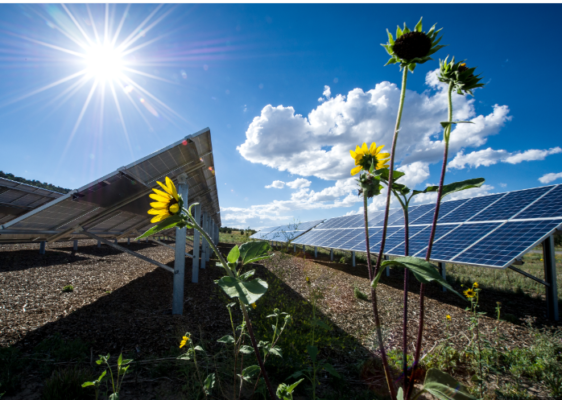- Homepage
- Science and Technology
- Exploring the Future of Sustainable Energy: A Look at Renewable Sources
Exploring the Future of Sustainable Energy: A Look at Renewable Sources
In recent years, the world has witnessed a growing urgency to transition from traditional fossil fuels to more sustainable energy sources. With concerns over climate change, environmental degradation, and energy security looming large, renewable energy has emerged as a promising solution to address these pressing challenges. In this article, we will explore the future of sustainable energy and delve into the key renewable sources driving this transition.
The Rise of Renewable Energy: Renewable energy sources, such as solar, wind, hydroelectric, geothermal, and biomass, harness the power of nature to generate electricity without depleting finite resources or emitting harmful greenhouse gases. As the global demand for clean energy continues to soar, the renewable energy sector has experienced unprecedented growth and innovation.
Solar Power: Solar energy, derived from the sun’s radiation, has emerged as one of the fastest-growing renewable energy sources worldwide. Photovoltaic (PV) cells, commonly known as solar panels, convert sunlight into electricity, offering a reliable and sustainable energy solution. With advancements in solar technology and declining costs, solar power has become increasingly accessible to homeowners, businesses, and utilities alike. From rooftop solar installations to utility-scale solar farms, solar energy has the potential to revolutionize the way we generate and consume electricity.

Wind Power: Wind energy, harnessed from the natural movement of air currents, is another prominent renewable energy source driving the transition to a low-carbon future. Wind turbines, strategically placed in areas with strong and consistent wind speeds, capture kinetic energy and convert it into electricity. Onshore and offshore wind farms have become integral components of the global energy landscape, providing clean and renewable power to millions of households and businesses. As wind turbine technology continues to evolve and improve, wind power is poised to play a significant role in meeting the world’s growing energy needs.
Hydroelectric Power: Hydropower, generated from the gravitational force of flowing water, has long been a staple of renewable energy production. Hydroelectric dams and facilities harness the energy of rivers and streams to generate electricity, offering a reliable and sustainable source of power. While large-scale hydroelectric projects have faced criticism for their environmental impact and displacement of communities, small-scale hydroelectric systems and run-of-river projects present viable alternatives that minimize ecological disruption and maximize energy efficiency.

Geothermal Power: Geothermal energy, derived from the Earth’s internal heat, taps into the planet’s natural thermal energy to produce electricity and heat buildings. Geothermal power plants utilize steam or hot water reservoirs beneath the Earth’s surface to drive turbines and generate electricity. With geothermal resources abundant in regions with active tectonic activity, such as Iceland and parts of the United States, geothermal energy holds immense potential as a reliable and sustainable energy source. From geothermal power plants to direct-use applications like heating and cooling systems, geothermal energy offers a versatile and environmentally friendly solution to meet energy demands.
Biomass Energy: Biomass energy, derived from organic materials such as wood, agricultural residues, and waste, represents a renewable energy source that harnesses the Earth’s natural carbon cycle. Biomass power plants combust organic matter to produce heat, steam, and electricity, offering a carbon-neutral alternative to fossil fuels. While concerns over deforestation, land use, and emissions persist, sustainable biomass practices, such as forest management and waste-to-energy initiatives, can mitigate environmental impacts and promote a more sustainable energy future.
Read More News:
- The Ruthless Incident: A Tale of Dine and Dash Gone Awry
- A Beachfront Illusion in the Heart of Florida: Orlando’s New Evermore Resort Revolutionizes Vacationing
- Byron Allen’s $100M Fraud Lawsuit Against McDonald’s Over Ad Spend Dismissed
The future of sustainable energy lies in harnessing the power of renewable sources to meet the world’s growing energy needs while mitigating the adverse effects of climate change and environmental degradation. From solar and wind power to hydroelectric, geothermal, and biomass energy, renewable resources offer a cleaner, greener, and more sustainable alternative to traditional fossil fuels. As governments, businesses, and communities embrace renewable energy solutions, we have the opportunity to transition to a more resilient, equitable, and environmentally conscious energy system. By investing in renewable energy technologies, fostering innovation, and promoting sustainable practices, we can pave the way for a brighter and more sustainable future for generations to come.




